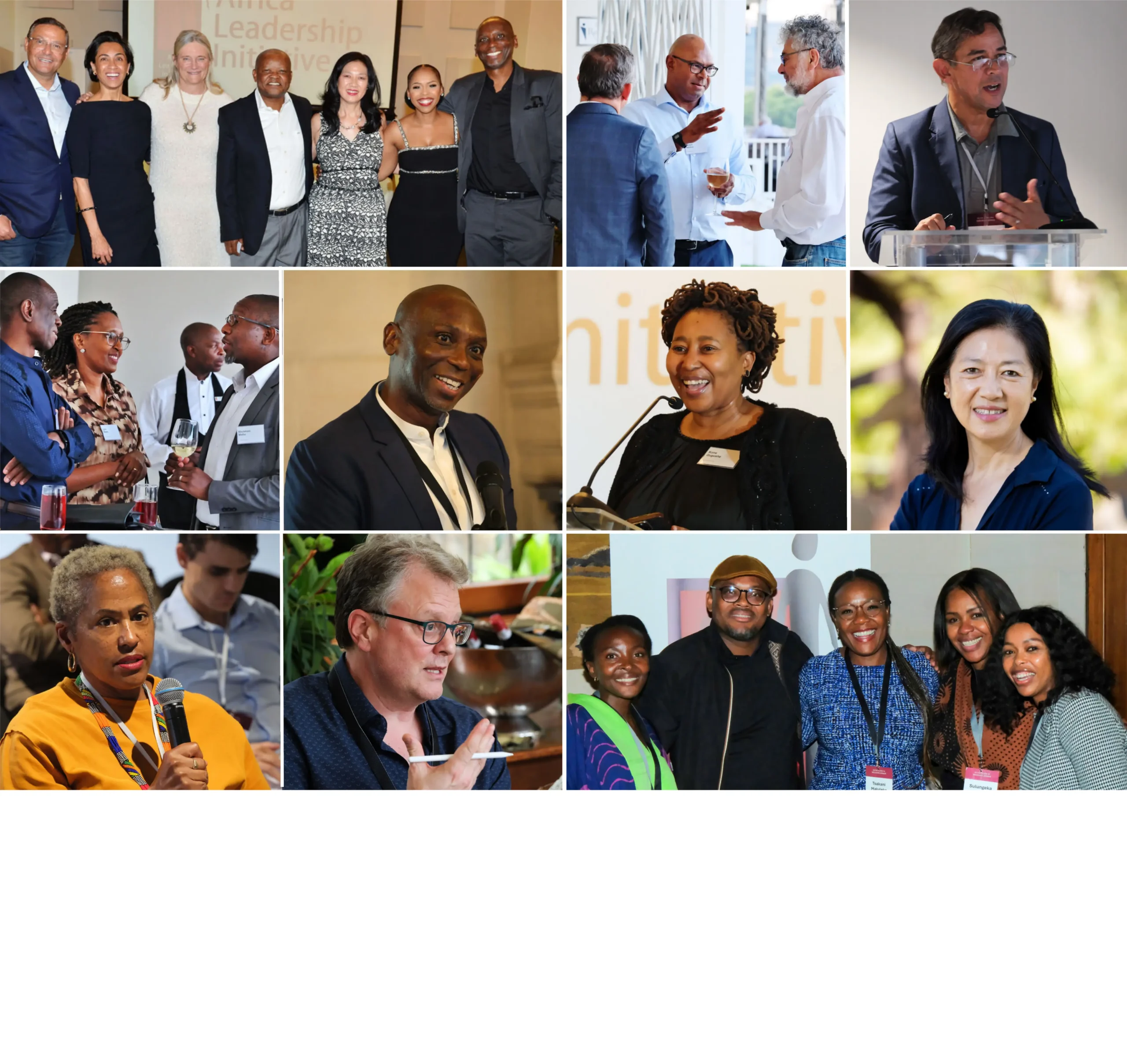
While many professionals are approaching AI with trepidation, entrepreneurs and leaders making positive changes have found ways to wield it with great power.
Since the internet’s invention in the 1980s, it has changed the way the world works and plays, faster than any other revolution. AI is now the fastest-growing technology to date. The African Leadership Initiative South Africa (ALI SA) held its second dialogue session for 2024 on artificial intelligence—Demystifying AI in Africa—on 3 July 2024.
The multiplatform event, sponsored by the First Rand Empowerment Foundation and moderated by ALI Fellow and impact technology entrepreneur, Joshin Raghubar, brought together some of the world’s leading experts in the field of artificial intelligence.
Panel member Mbali Ndandani is the Chief Commercial Officer of Lelapa AI, a development lab that conducts research and builds African AI products. The organisation uses African creators’ niche expertise to ensure African languages and needs are represented in an industry largely dominated by European, North American, and East Asian data. Its main focus is to serve African people by providing Africa-centric products.
“Nine out of ten people in South Africa, as well as in Nigeria, do not speak English at a proficiency level that allows them to fully ‘function’ in society. We’ve been hearing for 20 years that tech advances and mobile devices are allowing Africans to leapfrog. If the technology and tools on these devices are primarily in English, is it truly inclusive and accessible?” This question, raised by Ndandani, framed ALI’s panel discussion.
Ndandani shared an example of two young people she worked with at a Lelapa AI hackathon, who built solutions to address their own issues: one developed a WhatsApp seSotho reader to help his grandmother understand her phone’s prompts in her own language, and another translated universal sign language (primarily based on English) into isiZulu and Swahili.
“It matters that Africans and people in the global South create this work. It allows us to benefit from it, but it also enables us to respond to real problems. AI has the power to unlock so much more.”
Dr. Mark Nasila, Chief Data and Analytics Officer at FNB Risk and author of AI in Africa, a seminal book on artificial intelligence on the continent, warned that if Africa lags behind in AI development, it could create injustices that would affect many generations to come. However, he added that Africa’s unique approach to reimagining technology could lay the groundwork for its own AI interventions, boosting the continent’s chances for stronger economies and global contributions. “AI industries need to create products and services that meet society’s needs and that we can offer to the world. Policy alone can’t drive employment. For us to be on the global stage, we need to develop frameworks that align with the challenges we face. If we aren’t at the forefront now, we could miss opportunities that the continent can lead.”
Building AI for global South communities and addressing their specific needs is not easy. AI can be viewed as public infrastructure, but its current biases and Africa’s under-representation in it highlight the need for diversity, ethical practices, and unique solutions. Lelapa AI’s initiative, as well as that of India’s Apurva.ai, are examples of how global South creators can make distinctive impacts on solving global South problems.
Apurva.ai—which translates to “something that has never been seen before”—focuses on community-led AI built through co-creation and knowledge curation, with communities at its heart. Its founder, panel member Anand Rajan, calls this collective wisdom “sense-making.” “Sense-making infrastructures unlock value. Communities’ voices are the anchors, allowing us to view needs from different perspectives, which opens up massive innovation opportunities.”
Rajan explained that when communities are the “first-mile innovators, not the last-mile recipients,” it reorganises systems in a way that prevents the global South from being exploited. Apurva.ai has addressed issues of inequality for unorganised women workers and curated stories of small communities making big impacts on climate change.
While there are many positives, Professor Bruce Bassett, Chief AI Advisor for the University of Cape Town’s Faculty of Science, cautioned that innovators must plan for every potential future scenario. There is little information available to predict what these might look like, he noted, as AI is expanding rapidly. During the panel discussion, Professor Bassett reminded attendees that robotics are as much a part of AI as digital technologies.
Lee-Anne James, Director of Africa at Microsoft, emphasised that robots and other forms of AI are simply new forms of technology we need to get used to—similar to the changes brought about by the industrial revolution. She added that these tools can help bridge the divides that still exist between people.
While AI is approached with caution in some sectors, it has become an essential tool for leaders wanting to make dynamic changes for the betterment of the communities they serve.









